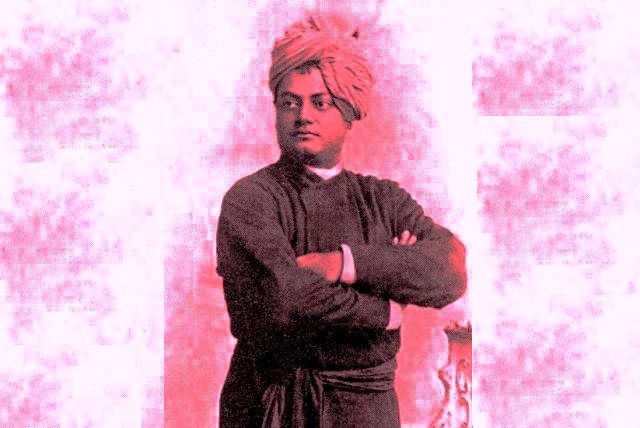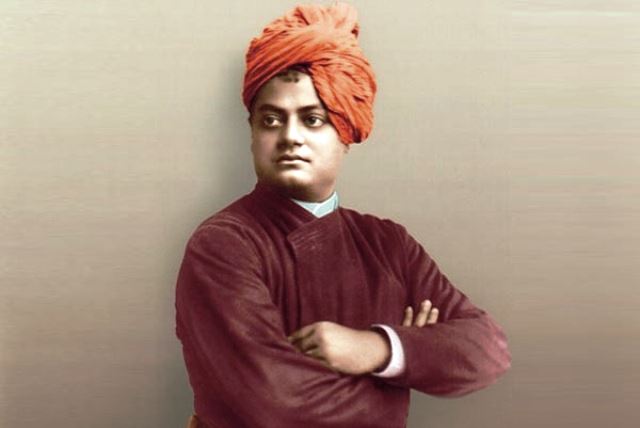Swami Vivekananda combined national service with a message meant for all humanity. He was deeply rooted in Indian spiritual wisdom, yet his message addressed the whole of humanity. His ideas came not merely from books, but from direct inner experience. At the heart of his thought lies one central truth: the transformation of society begins with the transformation of the individual.
One of the most important roles in this transformation is that of the Guru, or teacher. Mere book learning, however vast, cannot ensure spiritual or moral growth. What truly awakens the soul is inspiration coming from another awakened soul. The teacher must possess inner strength and purity, and the student must be receptive. When both are ready, growth happens naturally, just as a living seed grows when placed in fertile soil. Education, therefore, is not the transfer of information but the transmission of life and strength.
Vivekananda strongly warned against the habit of constantly criticizing institutions. All institutions are imperfect by nature. Finding faults is easy, but real service lies in helping people rise above their weaknesses wherever they are placed. When individuals improve, institutions automatically improve, and with them the nation. Good and virtuous people often rise above bad customs and unjust laws through love, integrity, and sympathy. A society made strong by character needs fewer laws, because good people naturally uphold what is right.
He also spoke sharply about lifeless routine and lack of effort in human life. Many people perform daily actions efficiently but mechanically, without enthusiasm or inner joy. Their minds remain dull, untouched by beauty, hope, or creativity. Such people are not convinced that a higher state of life is possible. Even when effort exists, it lacks energy and passion. Without conscious striving, life becomes stagnant. True progress requires alertness, enthusiasm, and a willingness to seek something better.
This leads to Vivekananda’s powerful idea of education. Education is not mere accumulation of information; nor is the training which suppresses independent thinking. True education is that which strengthens the will and brings it under intelligent control. An education system that kills originality, turns humans into machines, and discourages free thinking is harmful. It is better, he says, to act wrongly using one’s free will than to behave correctly like an automaton. A society of lifeless, fearful individuals can never be great. India’s long period of decline, according to him, was not due to lack of intelligence but due to loss of strength, confidence, and freedom of thought.
On the subject of men and women, Vivekananda rejected unfair comparisons. Strength should not be measured only by physical power. Women show immense courage through patience, endurance, love, and sacrifice, especially in nurturing life and holding families together. Each has their own sphere of excellence. True greatness lies not in comparison but in contribution. Society progresses through both visible acts of bravery and silent acts of responsibility and care.
A central theme in Vivekananda’s philosophy is love. People see the world according to their inner state: lovers see love, haters see hatred, and peaceful minds see peace. At the highest level, the enlightened person sees only the Divine. Love is the force that binds the universe together, from atoms to human relationships. Even negative actions are driven by misdirected love. Without love, the universe would collapse. This all-pervading love itself is God.
When discussing morality and goodness, Vivekananda took a deeply psychological view. Many immoral actions become automatic habits. People are often good or bad not by conscious choice, but due to conditioning. Therefore, one should not feel proud of being good, nor hateful towards those who do wrong. If circumstances were reversed, outcomes might also reverse. Even wrongdoers teach society important lessons. Thus, humility, compassion, and self-reflection are essential.
He emphasized that all knowledge is rooted in experience. Even scientific knowledge is based on observed experience that can be verified by others. Science does not demand blind belief; it appeals to universal human experience. Similarly, spiritual truths must also be tested and realized through personal experience, not accepted merely on faith.
Vivekananda also spoke practically about food and purity. Pure food strengthens both body and mind, while impure food weakens the senses and distorts perception. He warned against careless eating habits, especially unhygienic food from bazaars, which lead to illness and mental dullness. Physical health, he believed, is closely linked with mental and moral health.
On the question of good and evil, Vivekananda stated that the world is neither good nor bad in itself. Each person creates their own world through their state of mind. Just as fire is neither good nor evil but depends on how it is used, the world reflects our inner condition. The universe is perfectly balanced for its purpose and does not depend on human approval to function.
Regarding equality, Vivekananda offered a realistic and scientific view. Absolute equality, he said, is impossible in the world of creation. Differences and inequality are essential for movement, growth, and progress. Creation itself arises from imbalance. However, the struggle to reduce inequality and move towards freedom is also necessary. The dream of perfect equality inspires effort, even though it can never be fully achieved. Balance lies in recognizing differences without oppression.
Finally, Vivekananda warned strongly against fanaticism. Trying to forcibly straighten the world is like trying to straighten a dog’s curly tail—it springs back as soon as pressure is removed. Fanaticism creates hatred, anger, and division, and slows human progress. True work is done with calmness, sympathy, detachment, and balance. The level-headed person, not the fanatic, contributes most to society and also grows inwardly.
In conclusion, Swami Vivekananda’s message is clear: strengthen the individual, awaken the inner power, act with love and balance, avoid fanaticism, and society will naturally rise. The future of a nation depends not on institutions alone, but on the character and consciousness of its people.



